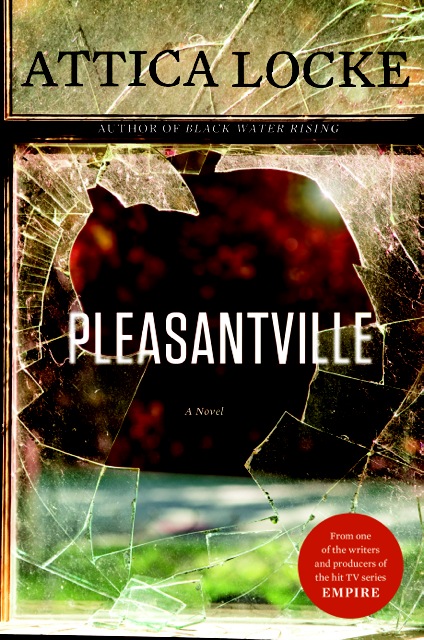PLEASANTVILLE
WINNER OF THE HARPER LEE PRIZE FOR LEGAL FICTION
Fifteen years after the events in Black Water Rising, Jay Porter is struggling to cope with catastrophic changes in his personal life and the disintegration for his environmental law practice. His victory against Cole Oil is still the crown jewel of his career, even if he hasn’t yet seen a dime, thanks to appeals. But time has taken its toll. Tired and restless, he’s ready to quit.
When a girl goes missing on election night, 1996, in the neighborhood of Pleasantville – a hamlet for upwardly mobile blacks on the north side of Houston – single father Jay is deeply disturbed. He’s been representing Pleasantville in the wake of a chemical fire, and the case is dragging on, raising doubts about his ability.
The missing girl was a volunteer for one of the local mayoral candidates, and her disappearance complicates an already heated campaign. When the nephew of a candidate, a Pleasantville local, is arrested, Jay reluctantly finds himself serving as a defense attorney. With a man’s life and his own reputation on the line, Jay is about to try his first murder in a case that will also put the electoral process on trial, exposing the dark side of power and those determined to keep it.
Praise & Reviews
“Stellar…. As is Ms. Locke’s creative wont, the crimes at hand prove a mere prelude to darker deeds.”
—Wall Street Journal Best Books of the Year
“Outstanding…. Ms. Locke elegantly parcels out key information about her characters one piece at a time.”
—Wall Street Journal
“Splendid…. A thoughtful, penetrating mystery.”
—USA Today
“This taut thriller. . . is knitted with enough shock and awe and backroom politics to keep you reading and guessing all weekend long.”
—Essence
“A nuanced and empathetic look at the unequal, contentious social layers of Houston’s African-American population.”
—Seattle Times
“Compelling…. Locke, a writer and co-producer of the Fox drama “Empire,” gracefully melds politics and racial issues with greed and a family rooted in secrecy for a gripping, believable plot.”
—Associated Press
“Locke knows how to craft a thrilling story…. With Pleasantville she’s crafted a legal thriller that shifts between personal tragedy and political corruption always with an eye on the subtle detail or the big reveal.”
—Milwaukee Journal Sentinel
“Locke, a sharp and gifted writer, delivers a complex, suspenseful legal thriller that offers a sophisticated appraisal of our deeply flawed political process, one that is likely to resound with readers.”
—Booklist
“A thriller wrapped in an involving story of community and family dynamics. Locke serves up a panorama of nuanced characters and writes with intelligence and depth.”
—Kirkus Reviews
“Gripping…a twist-filled plot will keep readers eagerly turning the pages.”
—Publishers Weekly
Locke makes every scene count with a complex plot that unfolds surprises at every turn and packs a satisfying conclusion…. Highly recommended for fans of fast-paced mysteries with strong geographic angles and appealing underdogs.
—Library Journal
“[A] deeply nuanced story…As Scott Turow has done, Ms. Locke uses small, incremental deceptions to draw her main character into big and dangerous mistakes…Subtle and compelling.”
–New York Times
“Attica Locke’s first novel, Black Water Rising, which Janet Maslin called ‘subtle and compelling’ in The New York Times, is an even better book than its author had in mind…The book cleverly replaces the kind of cold-war paranoia that used to animate thrillers with racial paranoia instead.”
—New York Times
“Locke deftly moves between past and present action…[putting] her in the company of master thriller writers such as Dennis Lehane or Scott Turow…Attica Locke [is] a writer wise beyond her years.”
—Los Angeles Times
“I was first struck by Attica Locke’s prose, then by the ingenuity of her narrative and finally and most deeply by the depth of her humanity. She writes with equal amounts grace and passion. . . . I’d probably read the phone book if her name was on the spine.”
–Dennis Lehane
“The impressively astute Attica Locke writes . . . in much the same way that Mr. Lehane [does]. . . . Each is willing to use the murder mystery as a framework for much more ambitious, atmospheric fiction.”
—New York Times
“Dripping with southern Gothic atmosphere. . . . Equal parts murder mystery and family drama, the novel also draws readers in through its considerations of African-American history and life in post-Katrina Louisiana.”
—USA Today
“Compelling. . . . A mystery that expands the whole idea of the mystery, reaching from the present deeply into the past. . . . Great writing, the kind that gives you goose bumps.”
—Los Angeles Times
“Absorbing. . . . As she managed to do so well in her first novel, Black Water Rising, Locke draws on the past to remind her characters how much it has shaped their identities and how much it continues to shape the choices they make.” –
–New York Times Book Review
“[A] haunting mystery, where the murder of a migrant worker brings past and present into hair’s–breadth proximity. ”
—People
